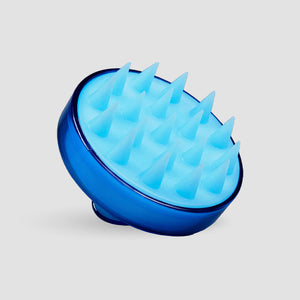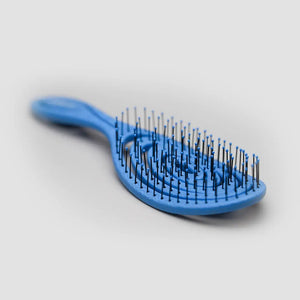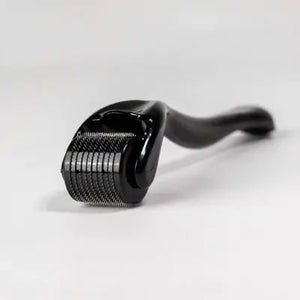
Does gluten intolerance cause hair loss?
You eat as usual, nothing has changed in your life, you are not stressed and yet your hair falls out “out of the blue”? Many people suffer from gluten intolerance, which in chronic form is diagnosed Celiac disease is known.
In most cases, the disease manifests itself with gastrointestinal complaints and impaired digestion. Headaches and abdominal cramps are also symptoms of the intolerance. It is also possible that severe Hair loss due to gluten intolerance can happen is known to very few people and is therefore rarely put into context.
Table of contents
- What is gluten?
- Can severe hair loss indicate a gluten intolerance?
- What role does nutrition play in hair loss?
- Is a hair transplant possible with gluten intolerance?
- Gluten-free diet in preparation for hair implantation
- Conclusion: Hair loss is a common side effect of gluten intolerance
What is gluten?
Gluten intolerance, also known as celiac disease, is an autoimmune disease caused by the intolerance of gluten. Gluten is a protein found in wheat, barley, and rye. In people with celiac disease, gluten triggers an inflammatory response in the gastrointestinal tract, which can lead to digestive problems and nutrient deficiencies.
A typical symptom of gluten intolerance is a deficiency in nutrients such as iron , zinc, and B vitamins , which are important for hair growth. If the body doesn't receive enough nutrients, it can lead to hair loss. Furthermore, the inflammation triggered by gluten can impair hair growth.
Can severe hair loss indicate a gluten intolerance?
Hair loss is an important signal from your body that indicates a problem . Don't look for the cause of thinning hair or baldness exclusively in your scalp or psychological state. Hair follicles are very sensitive and react strongly to nutritional deficiencies, shifts in the acid-base balance, and substances your body rejects.
If you're gluten intolerant, consuming any grain product triggers a strong immune response. This manifests itself in various ways, such as circular or diffuse hair loss. Gluten can promote nutrient deficiencies , which in turn promote hair loss and can lead to complete hair loss within a short period of time.
People with gluten intolerance also often suffer from fluctuations in blood sugar , a second grain-related cause of severe hair loss. It's relatively easy to get to the root cause. Avoid all gluten-containing foods and observe whether hair loss decreases after a period of two to three weeks.
What role does nutrition play in hair loss?
If you're experiencing hair loss, especially if it occurs suddenly and is neither age-related nor genetic , you should pay attention to your diet. Do you eat products containing white flour every day? Do you often eat ready-made meals or grab your lunch from a takeaway?
Pizza, bread, and pasta are gluten-containing foods that cause particularly strong reactions in your body if you have a predominant gluten intolerance. Only when you abandon the notion that gluten only affects the digestive tract can you identify the real cause of your hair loss.

Gluten intolerance leads to diffuse hair loss . Other warning signs and restrictions may not necessarily occur. If your diet is solely to blame, for example, due to a mineral deficiency , you can address the problem with a change in diet.
If the hair loss is very advanced and has already led to baldness, no new hair will grow on this part of the head without an implantation of your own hair .
Is a hair transplant possible with gluten intolerance?
If hair loss is caused by a gluten intolerance and is at an advanced stage, a hair transplant is an effective treatment for unwanted baldness . A gluten allergy is not a contraindication for hair transplantation.
Before you receive an appointment for the minimally invasive procedure, you will be invited to an initial consultation at your preferred hair clinic. Here, you will answer questions about your known allergies and intolerances . If you are aware of gluten intolerance, please answer this question honestly.
The more information the treatment team has about the possible cause of your hair loss, the more personalized your advice will be. Please be aware that hair loss may recur after a hair transplant if you take dietary changes lightly.
Gluten-free diet in preparation for hair implantation
Of course, you can only follow the recommendation to avoid a gluten-free diet if you know the cause of your hair loss . A general practitioner or dermatologist can conduct a blood test to determine whether the hair loss is due to a gluten intolerance or a side effect of another, possibly chronic, condition.

A gluten-free diet is generally healthier and therefore not a real restriction, even if you have to forgo pizza and the like. With early detection, your hair growth will regulate itself , making a hair implant unnecessary. The situation is different if you have lived with the intolerance for many months or years and don't associate gluten with hair loss.
A completely bald patch on the top of your head won't grow new hair, even if the cause is addressed, making a hair transplant your only chance of restoring your desired hair density . At the hair clinic, you will be informed about your behavior before and after the procedure, as well as the risks of not changing your diet.
You should ask all your burning questions in advance and carefully consider whether you can live without gluten in the future and give your freshly transplanted hair a chance.
Conclusion: Hair loss is a common side effect of gluten intolerance
Gluten intolerance is widespread. Yet only half of all celiacs know the reasons for their discomfort. If you suffer from digestive problems, you'll quickly connect them to your eating habits.
The situation is different with hair loss. When it comes to gluten intolerance, hardly anyone considers that the hair loss is due to a nutrient deficiency . Even less often is it considered that the deficiency symptoms are directly related to grain-containing foods.
Get tested for gluten intolerance or see if your hair growth thickens when you avoid gluten-containing foods like convenience foods and bread. If so, you'll know the cause of your hair loss and can decide whether a hair transplant is an option for you .




















